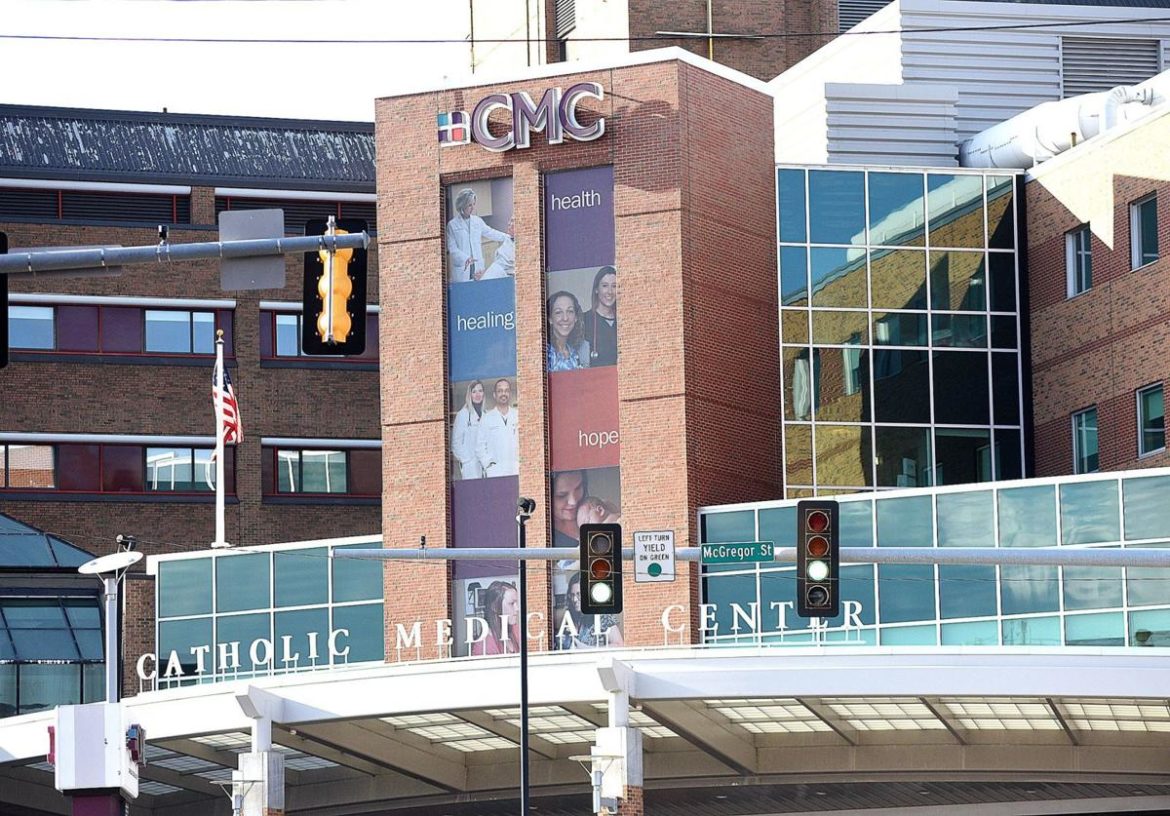By PAULA TRACY, InDepthNH.org
CONCORD – Hospitals across the state are facing some of the highest census numbers since last January due in part to the pandemic with some looking at “levers” they can pull that include suspending elective overnight procedures, said Steve Ahnen, president of the New Hampshire Hospital Association.
Meanwhile, a number of the state’s largest hospitals and health-care providers, including Elliot Hospital and Catholic Medical Center in Manchester and St. Joseph Hospital in Nashua announced mandatory staff vaccinations on Thursday
Speare Memorial Hospital in Plymouth, which has asked its staff to be vaccinated by Nov. 17, has temporarily postponed elective surgeries that require an overnight hospital stay, said Kate Tarbox, director of marketing and community relations.
This is seen as a possible way to relieve the pressure for beds that are at capacity now.
The state’s 25 other community and five specialty hospitals are also facing overnight bed capacity issues as well, and labor shortages, which occurred before the pandemic and persist making this crisis seem “relentless,” Ahnen said.
He said it is like running a marathon only to find the finish line keeps moving.
Mandates by hospitals for health-care workers to be vaccinated against COVID-19 are in some cases already in place, being considered or are approaching deadlines. That in itself could add to the issues of capacity and having enough people to care for the sick.
Ahnen said there is no data available on that yet and federal mandates are in the works on top of what each private hospital has decided. It all is adding stress to an already stressed health-care system, but New Hampshire is not alone in that regard.
“The challenges are real,” said Ahnen, and they are also potentially economic if hospitals have to curtail elective procedures again, as they did at the start of the pandemic.
While emergency federal and state financial assistance helped fill the financial gap, it is unknown how all hospitals will weather this continued crisis, he noted. This week’s spike in hospitalizations is the highest it has been since Jan. 2 when there were 334 hospitalized at the same time for COVID-19, Ahnen said.
On Thursday, the state reported 205 people hospitalized due to COVID-19.
Fortunately, he said, there is some recent increase in first vaccinations.
While he said urgent needs will be met, some hospitals may look to the postponement of elective overnight procedures to save beds as a capacity issue.
While many of the state’s community and specialty hospitals decided this summer to require their employees to be vaccinated, the health-care sector is also looking at future federal mandates, now being promulgated at the federal Office of Management and Budget, which would require vaccinations in two different ways, Ahnen said.
One would be a vaccination requirement for all staff of institutions that accept Medicaid. The other mandate would be through the federal Occupational Health and Safety Administration requires all employers of 100 or more employees to be vaccinated. Many of the state’s hospitals have more than 100 employees and in some instances are their community’s largest employer.
While Gov. Chris Sununu said he would file suit against the Biden Administration once those rules are finalized, the New Hampshire Hospital Association supports the full vaccination of health-care staff.
Ahnen noted that Dartmouth-Hitchcock Medical Center, the first to issue a requirement that its employees be vaccinated, reported a 99 percent compliance rate among its workers.
“We don’t want to lose any employees,” he said Thursday, but the reality is that some people are moving out of health-care because of the pandemic and its requirements to be vaccinated. He said he had no solid numbers on that, but he did say some of the state’s health-care workers have died from COVID-19.
At one of the state’s largest community hospitals, Catholic Medical Center in Manchester, Lauren Collins-Cline said the hospital is not at maximum capacity “but we are very, very busy, both with COVID and non-COVID patients. Limiting elective procedures is not something we’re considering right now. The primary reason for doing that in 2020 was to preserve personal protective equipment and resources for COVID care. We also had to navigate what was, at the time, all of the unknowns.
“As hospitals opened back up electives last spring, we put measures in place on the lessons we learned in order to care for COVID and non-COVID patients in parallel,” she said.
At Huggins Hospital in Wolfeboro, Monika O’Clair said, “we are almost at capacity, and this changes day-to-day. It won’t take much to push us over that edge. Currently, we are not going through the same level of crisis that other hospitals in the state are experiencing. We have high vaccination rates in our local area and that, along with the dedication and resiliency of our staff, is keeping us strong at the moment.”
O’Clair noted the hospital has over 87 percent of its staff vaccinated against COVID-19.
“We do not have a vaccine mandate at Huggins Hospital at this time. We are working with individuals to answer their questions and help them to make the decision to be vaccinated before a mandate is made. Since September 1, 2021, we have required all new hires be vaccinated against COVID-19 as a condition of employment,” she noted.
Audra M. Burns, spokesman for Dartmouth-Hitchcock, said the hospital in Lebanon typically runs around 85 to 90 percent occupancy in its licensed beds with staffing, and that’s not specific to COVID.
Burns said the COVID-19 hospitalizations fluctuate daily. On Thursday, she said the hospital had 15 COVID-19 inpatients, which is not at maximum capacity.





